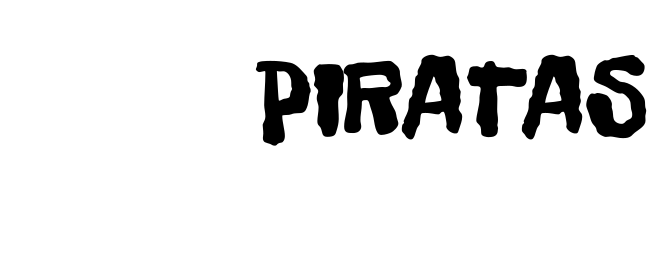Years ago, many years ago, as I transitioned from my player-coach adventure in Vienna, Austria, I set out on a new undertaking and journey to Italy. At that point, as I was just beginning as a basketball coach and dreaming of a career, I did anticipate that the road ahead would be complex and demanding—and it certainly proved to be as I quickly realized the vast amount of knowledge I lacked
Notwithstanding my years of playing experience, including at a professional level, the task at hand filled me with anxiety. On the one hand a novice had to master the fundamentals and had to navigate a diverse range of defensive strategies, including man to man, ball side, help side, defensive rotations, half-court zones, full-court zone-presses, and various zone formations such as odd and even fronts, triangle and two and the box and one.
On the other hand, was the offensive aspect; I explored psychological elements, individual and team techniques, and countless drills requiring understanding and memorization. I examined systems called The Flex, The Passing Game of Bobby Knight (which was not a system but a set of rules), “UCLA”, the Drake Shuffle and the Double Stack along with various post offenses. Then came the list of all the out-of-bounds plays and the “Counters” used against pressure defenses. Finally, there were the defensive and offensive rebounding responsibilities, the Fast Break, the Secondary Fast Break, Transition and other concepts to learn and to know how to teach. Sometimes the amount and scope of material seemed endless, but I persisted. Once finished I felt I could maybe even qualify for Master Chef.
If those many years ago were now, if they were today in 2024, all the learning could have been abbreviated. Nowadays it’s about having to learn the old schoolyard Pick and Roll, the old Boston Weave and then some more Pick and Roll.
Just joking (somewhat).
As I delved deeper into these basketball studies, I also took the opportunity to learn Italian, which certainly enriched my life experience. But above all an important and significant professional lesson emerged; I recognized the critical priority of self-regulation. It became clear to me that my coaching systems, tactics, and philosophy needed to fit the specific, distinct physical and mental attributes of my players. Their characteristics had to guide my approach, they had to determine my tactics and my systems, rather than the opposite.
Which brings me to my discourse and the phenomenon of the ‘Recycled’ sports Coach or the Modern-Day Mercenary in the Sports Arena.
In today’s world of professional sports, the trend of ‘recycled’ coaches—those who frequently switch teams—has become more common. These coaches, often seen as modern mercenaries, come with a lot of experience and various strategies. However, their frequent moves raise concerns about the long-term growth and identity of the teams they coach.
The Growth of the Recycled Coach
The rise of coaches changing teams often can be linked to several reasons. First, the intense pressure in professional sports usually results in short coaching stints, especially when teams want quick success. Clubs tend to hire experienced coaches with a solid history, even if they have recently worked at multiple teams in the same league.
Additionally, the global nature of sports has played a role in this trend. With the sharing of ideas and tactics worldwide, coaches are not limited to their own countries. This freedom allows them to explore opportunities around the world, creating a more active and changing coaching market.
The Mercenary Coach: Advantages and Disadvantages
Recycled coaches, similar to mercenaries, provide unique benefits to the teams that hire them. They come with extensive experience and a strong grasp of the game, having worked in different settings and with various player groups. This knowledge can be crucial, especially for teams in trouble or those aiming for a quick improvement.
On the downside, the mercenary aspect of these coaches can have negative effects. Their focus on short-term results often overshadows long-term growth. This can disrupt the team’s strategy and philosophy, as each new coach may bring a different approach. Moreover, the frequent changes in coaching staff can impede the progress of young players, who may find it hard to adapt to the ongoing shifts in coaching styles and tactics.
Case Studies: Wins and Losses
The effects of recycled coaches are evident in various case studies from different sports. In soccer, José Mourinho stands out. Renowned for his tactical skills and success in winning titles, Mourinho has coached several top clubs like Chelsea, Real Madrid, and Manchester United. While he has achieved short-term victories, his time at clubs often ends suddenly, sometimes leaving them in chaos.
In contrast, Bill Parcells in American football represents a successful recycled coach. He has guided multiple NFL teams to playoff success, and his ability to revitalize struggling teams has made him a legendary figure. His impact lasted beyond his time, as many of his former assistants became successful head coaches, highlighting the potential long-term advantages of a well-executed coaching change.
In the first case Mourinho expects the players to adjust to his system and mindset while in the case of Parcells the opposite is true in that he adjusts his methods to meet the individual capabilities of his teams.
The Moral Issues
Seeing coaches as mercenaries brings up ethical concerns. Loyalty, a key value in sports, often takes a backseat to big paychecks and career growth. This mindset can influence players, creating an environment where personal goals overshadow dedication to the team.
Additionally, the financial impact is considerable. The high salaries of seasoned coaches, along with their frequent hiring and firing, create a heavy financial strain on clubs. Smaller teams may struggle to keep up, increasing the divide between top teams and others.
Moving Forward: Finding a Balance
To tackle the problems caused by repeated coaching hires, sports organizations should find a balance between using their expertise and maintaining long-term stability.
This might include steps like:
- Long-Term Contracts with Performance Clauses: Promoting a focus on long-term growth while ensuring accountability.
- Succession Planning: Creating a system for developing internal coaching talent to maintain stability and lessen dependence on outside hires.
- Emphasizing Youth Development: Focusing on nurturing young players to secure a sustainable future for the club.
The phenomenon of recycled coaches in professional sports reflects the complex interplay between the pursuit of immediate success and the need for long-term stability. While these modern-day mercenaries bring valuable experience and possibly a winning mentality, their transient nature can also disrupt team cohesion and development. By adopting strategic measures, sports organizations may want to think more long term and create their own, homegrown future coaches but in the meantime can harness the benefits of recycled coaches.
The Jump Ball Dept:
- When I first arrived in Spain with my African-American Winston All Stars team in 1983, I witnessed an wonderful heartwarming display of sportsmanship. It was during a match between Real Madrid and Valladolid. One of the players, while dribbling, unexpectedly fell on his ass on the court after hitting a damp spot, causing the ball to go out of bounds. Real Madrid’s captain, Corbalan, quickly retrieved the ball and in-bounded it. In a remarkable show of respect, his teammate then intentionally threw the ball out of bounds, returning possession to Valladolid. This was a true gentleman’s act. But it didn’t stop there! In a gesture of gratitude, Valladolid in-bounded the ball and then tossed it out of bounds as well, acknowledging Real Madrid’s kindness and sportsmanship. It was a moment that deserved a standing ovation.
Which raises the question; Why don’t we see such gestures in today’s sports?
- “Well the whole world is filled with speculation, the whole wide world which people say is round, they will tear your mind away from contemplation, they will jump on your misfortune when youre down“. Bob Dylan
Artículos de opinión
Redes sociales:
X: @TimShea03304927
Facebook: Tim L Shea
Instagram: tim.shea49






